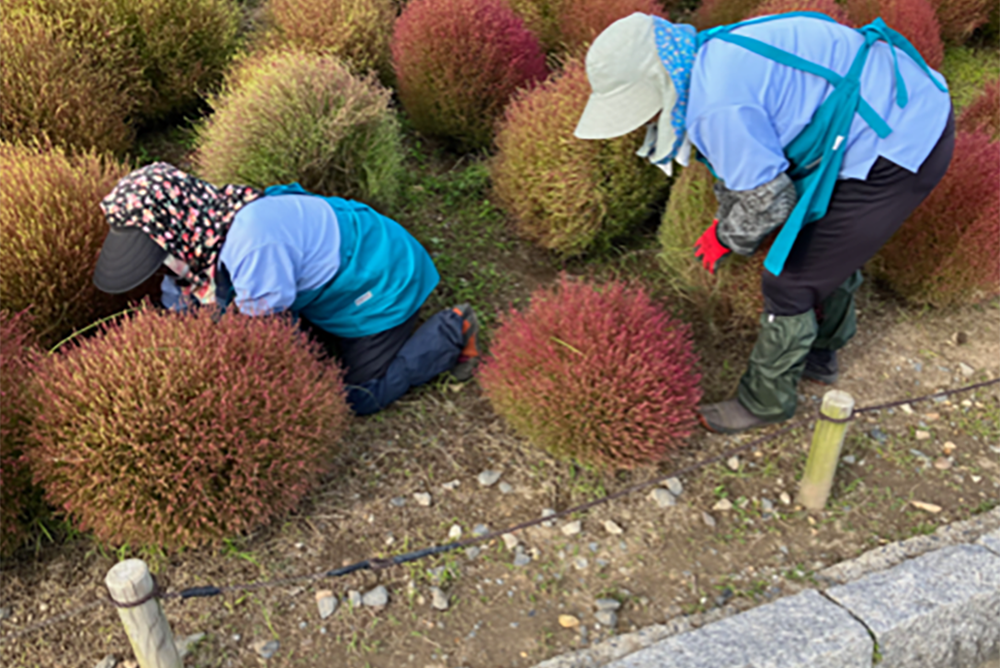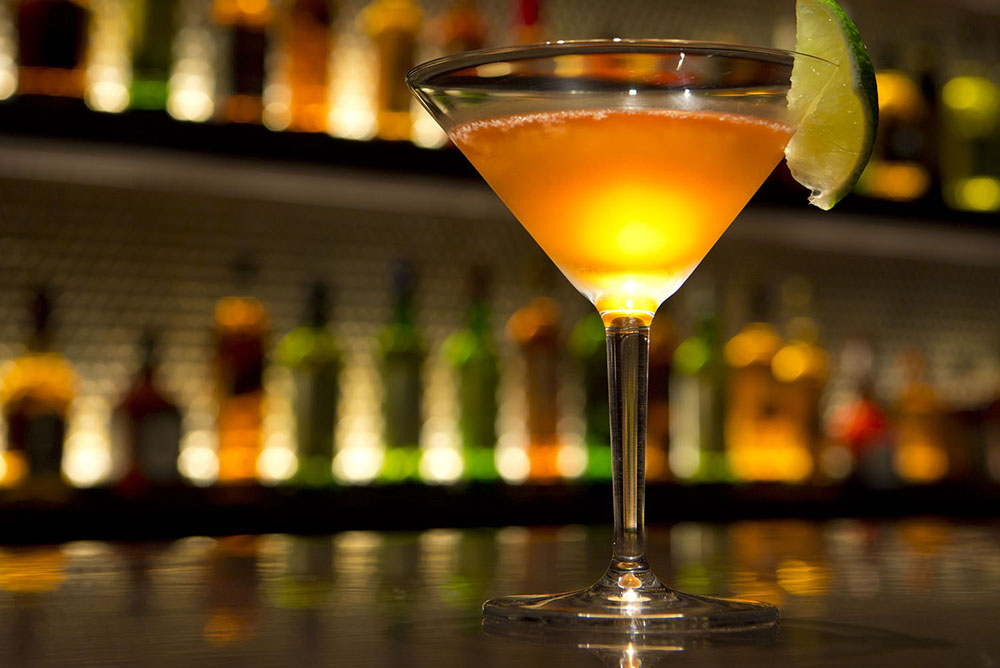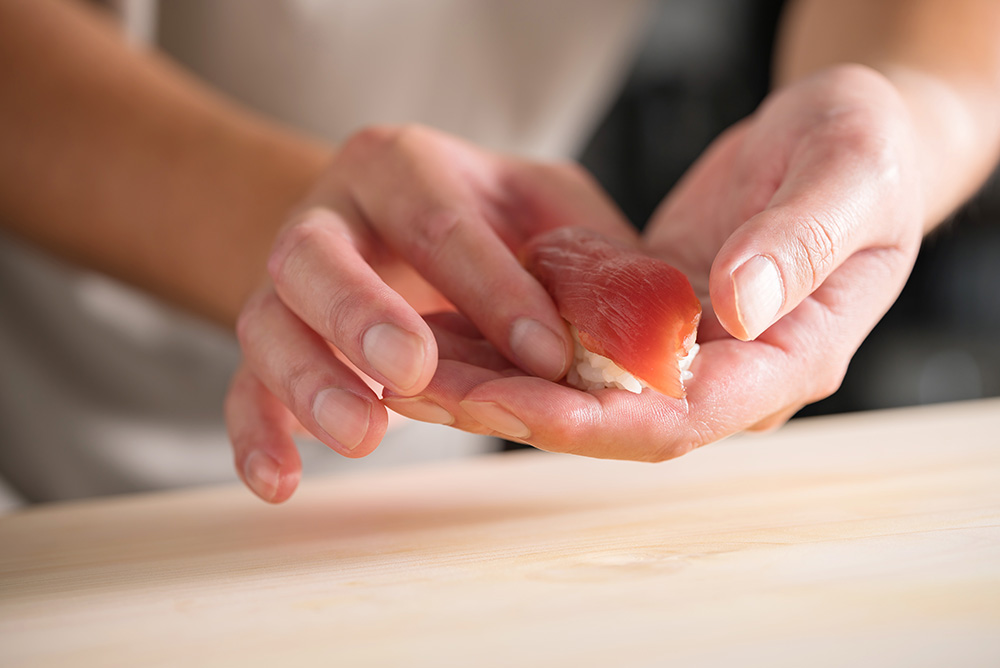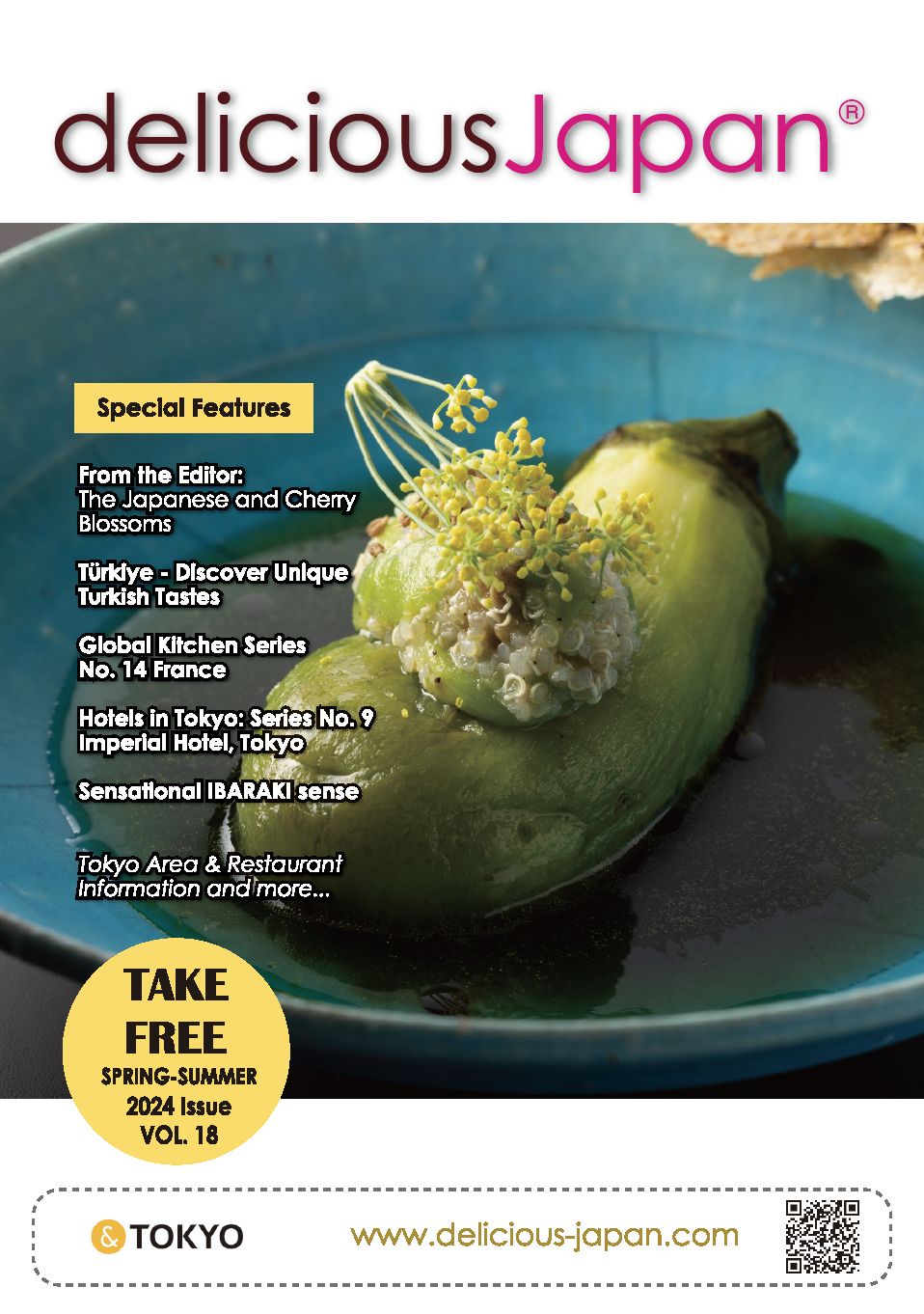
Cerulean Tower Tokyu Hotel
Nobuhiko FUKUDA
Executive Chef, Cerulean Tower Tokyu Hotel
In 2001, Mr. Fukuda was appointed Executive Chef when the hotel opened. Since then, he has played the role of general producer for the hotel's cuisine. In 2018, he was awarded the "Order of Agricultural Merit - Officer" by the French government for his contributions to the promotion of French food culture. In 2019, he was selected as a "Modern Master Craftsman" for his excellence in the art of flame broiling, and his innovative and expressive cuisine has impressed many hotel guests. He is also actively involved in dietary education activities that aim to help children become food independent and develop their five senses through food.

After high school, I entered a restaurant specializing in Western cuisine. At that time, Western cooks and students of Western cuisine were based in French cuisine. When it comes to French cuisine, one must inevitably go back to the time of Emperor Meiji, because the story of French cuisine (in Japan) begins with that Emperor. The Meiji Restoration took place in 1868. During that era, the French were considered to cook the best cuisine in the world, and a Frenchman was appointed as the cook for Emperor Meiji. The tradition of the emperor's cooks training in France continued thereafter. When I first entered the culinary world 48 years ago, French cuisine was the foundation for learning Western cuisine.
I see French cuisine as a mathematical cuisine. The fun comes from adding ingredients, multiplying them together, and then dividing and condensing them further to create a new dish. Japanese cuisine, on the other hand, seems to me to be a "subtractive" cuisine that values the ingredients and strips away the superfluous. In French cuisine, there is the pleasure of adding different ingredients together to create new flavors.
Those are the words of a mentor I met during my training in France. People naturally have appetites. At the time, I was about 30 years old, not being paid enough and not being recognized as a full-fledged employee, so I was struggling every day. At that time, my mentor taught me, "Before you want something for yourself, delight others first and make their joy your reward". When people live amid greed, they inevitably want something in return. However, as long as we continue to live in the world of greed, I was told to try to make the other person's pleasure my reward. I was taught that it is important to make the joy of others our joy, not to chase remuneration or reputation. I was taught that if I delighted my customers and turned their delight into my own, I could continue to do this work.
What kind of food experience can international guests expect at your hotel?Washoku (Japanese cuisine) has been registered as an intangible cultural heritage by UNESCO and has become much more widespread, so I very much hope they will enjoy Japanese food. On the second floor is the Japanese restaurant Sakuragaoka, where guests can enjoy a meal while appreciating the beauty of the four seasons and the essence of Japanese culture. On the B2 floor is Cerulean Tower Sukiya, a ryotei restaurant featuring traditional architectural style, where you can enjoy exquisite kaiseki cuisine in a space surrounded by Japanese flair. At the Teppanyaki restaurant Sakura, also on the B2 floor, guests can enjoy Wagyu beef, one of Japan's most prized ingredients, grilled right in front of them for an immersive experience. We hope that our overseas guests will fully enjoy Japanese culinary culture through these special food experiences.
How do you select and procure ingredients on a daily basis?The hotel has a Procurement and Purchasing Department, and the selection of ingredients is largely based on the discernment of those staff members.
We are also involved in the selection of ingredients, but first the Procurement and Purchasing Department selects the items. Several times a year, the hotel hosts banquets based on all prefectures in Japan, from Hokkaido in the north to Kyushu in the south, as well as fairs using their ingredients. As a result, we often actively incorporate ingredients that are unique to each region. It's also a valuable opportunity to learn about new ingredients from various regions, and we make effective use of the information we gain through these events.
Although I myself devise the menus, the first step is to check the menu ideas proposed by each restaurant's head chef. In addition to the appearance and visual appeal of the food, the menu is finalized by actually tasting the dishes, listening to the ideas on how to bring out the flavors, and exchanging ideas to reach a consensus.
For new menu items, the chef's personality and intentions are respected, including the timing of the offering, and adjustments are made to reach a satisfactory level. To avoid taking away from the chef's assertiveness and personality, we coordinate as we tune into each other's frequencies until we have a product that is up to par.
Also, menu structure is important. To use a musical analogy, when playing a beautiful chord, if even one note is out of tune, the harmony collapses. If the creator cuts corners, the guests will feel it. The moment when all that effort and hard work pays off is when guests are delighted and tell us, "I'll be back!" Our chefs are committed to developing menus to achieve that moment.
In the past, it was enough to keep the religious aspect of Halal in mind, but now we feel a strong need to go beyond that and accommodate a wide variety of guests. This is also a concern for our staff. In the future, we intend to study more deeply and further develop our ability to meet needs.
How do you, as a "comprehensive producer of food," want to lead Cerulean Tower further in future?I have been involved with this hotel for more than 25 years, from its preparatory stages. Times were tough then, and the hotel industry was forced into mergers and consolidation as the bubble burst. Under those circumstances, Cerulean Tower Tokyu Hotel's goal was to "aim for the first class." We will continue to hold onto that thought and work on it in the future.
Cuisine is culture itself, and has universal value. As a comprehensive producer of food, I want to continue to offer authentic cuisine here at Cerulean Tower Tokyu Hotel, with a focus on Japanese, Western, and Chinese cuisine. Although there will be changes over time, we strongly believe that what should not be changed must never be changed.
For me, true hospitality means that through the food I prepare, I can move the other person and have a conversation with them. The president of an international fashion brand is a regular customer. He orders a very sweet blackcurrant sorbet every time. I did a lot of research and came up with that sorbet in order to create a flavor that would remind him of his hometown. He said it tastes like something his grandmother used to make. When he tasted it, a vivid scene of the place where he used to live came to his mind.
Taste is the recreation of a nostalgic dream in a person's mind. When I am able to reproduce the flavors someone is looking for, and the taste stirs their senses, that is truly what hospitality is all about. And at the root of that hospitality is love. In the moment when that communication connects, the sense that "this is only sorbet, but it's still sorbet" is born.

Naoko TSUGITA
Chief Concierge, Cerulean Tower Tokyu Hotel
The duties of the hotel concierge are more extensive than ever before, and the roles asked of them are increasing. They are expected to respond to all kinds of requests from hotel guests, beyond making things like restaurant reservations, providing tourist information, arranging tickets, and making air and train reservations. As a result, more and more guests are impressed by the human and information networks built by the concierges, and by their attentive customer service, and many have become concierges fans. In this issue, we had the opportunity to talk to one of these fascinating concierges.

When I started working, I chose the hotel industry because I felt that customer service was a better fit for me than office work. I joined Hotel Seiyo Ginza, which had just opened. Initially, there was no concierge position, but there was a personal secretary role. I was expected to provide all kinds of support to hotel guests, including welcoming them, checking them in, and taking care of them during their stay. I attained the position of personal secretary after two years, in which time I had gained experience in other departments. At that time in Japan, the role of concierge had not been established, and Hotel Seiyo Ginza was itself an up-and-coming hotel with a "small luxury" style that had never existed in Japan before, so I felt as if I was building the hotel together with our guests. That experience is still the starting point for my involvement in concierge work today.
What are the biggest challenges or concerns associated with welcoming foreign visitors?There are many struggles in our daily work. For example, a guest may ask me to make a reservation at a Michelin-starred sushi restaurant. If the reservation is for 7 p.m., the customer needs to arrive at the restaurant by 6:50 p.m. Surprisingly, the guest is often still in the lobby then. One of the difficulties is that we have to repeatedly tell them "be punctual!", which is probably influenced by our sense of time and cultural differences. I take care to explain the differences in advance and make sure the guest understands, so as not to inconvenience the sushi restaurant or make the customer uncomfortable about being late. That means education of customers is also required.
Therefore, I feel that in addition to my role as concierge, I also have to provide multifaceted services as an educator. While it requires a lot of hard work and attention, working at the hotel also gives me the opportunity to meet people I would not normally meet, which is something new and fun for me.
Two of the hotel's greatest strengths are its location in Shibuya and its view. Shibuya itself, with its world-famous scramble crossing, is a major attraction for visitors. The hotel's location in such a place is one of its greatest strengths. Furthermore, the view from the 40th floor is truly spectacular, as the building is located in the heart of the city but is not surrounded by tall, dense buildings. The restaurant and bar are located on the 40th floor, which is the perfect place to enjoy the view, as you can even see Mt. Fuji.
What kind of stay experience would you like your guests to have?We want to provide our guests with an authentic Japanese cultural lodging experience. There is a Noh theater in the basement, as well as a traditional sukiya-style ryotei (Japanese-style restaurant) and a tea ceremony room. Through these facilities, guests can fully enjoy the essence of Japanese elegance and kaiseki cuisine.
On the lobby floor, the space is decorated with ikebana flower arrangements of the Sogetsu school, allowing visitors to experience Japanese culture everywhere by learning about the seasons and feeling their inspiration. In addition, "Breakfast with a Smile" is served in the restaurant on the lobby floor. We call it that because it's the kind of breakfast that naturally makes you smile, no matter what you eat.
And once you step out of the hotel, you can enjoy modern Tokyo to the fullest from the best location.
We often get questions from customers asking for directions to somewhere. A hotel guest once stopped by the concierge desk and said, "I'd like to go to xyz." I replied, "it's only a few stops by subway," but the customer seemed a little offended. She said "I've never even ridden the subway in my own country, and you want me to take the subway here?" Through this exchange, I realized once again that each customer's background and situation is different, even when they ask a simple question. That experience taught me the importance of carefully assessing each customer and responding appropriately. We always try to pay attention to avoid perfunctory customer service.
On one occasion, a pregnant Japanese guest consulted me. She wanted us to find a plushy of a certain character before returning to England, where her husband was posted. The guest had been given the same character by her mother as a child, and she wanted to give the same plushie to her coming child, in the hope that he or she would grow up with the same feelings expressed in the plushie.
It took me three days to finally locate that plushie. The customer said that it gave her courage and was very significant for her life, and she gave me a smaller version of the same character. That plushie now hangs in my locker.
In the words of fashion designer Hubert de Givenchy, "luxury is in each detail." In the world of clothing, we are told that the details, in elements like embroidery, beading, and pockets, are essential for luxury.
Translating this to the concierge's job, I think the concierge's skill lies in adding a few minor details when responding to a customer's request, not just making the reservation for the right time. I think it is important to always think about how far we can go to serve our customers and how satisfied they will be, and to continue to study and work hard every day.
To me, true hospitality means giving care, attention, and consideration as if to one of my own relatives. I believe that the essence of hospitality lies in whether or not we are doing things for our guests in the same way we would do them for our loved ones and family members.






